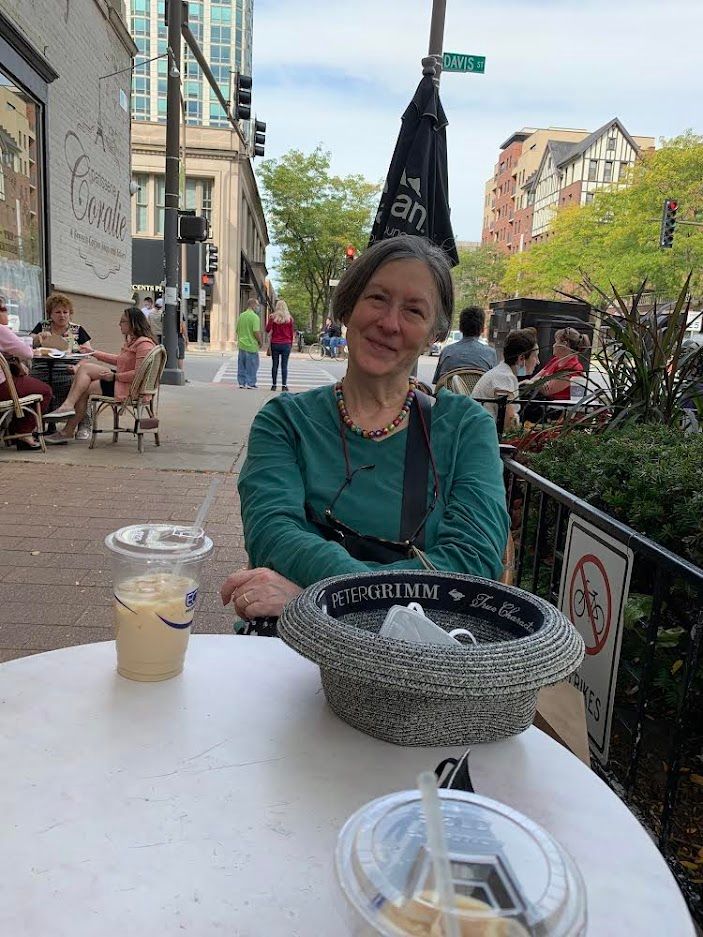Not That Story
Trouble was, there was a lot of trouble. Questions I didn’t understand, even though I worked there. A month or so before, I’d run into a group of art-school people sitting together around the curve of a bar, nice people, friendly.

by Maud Lavin
Jim died in his mid-sixties of a heart attack when he was up for tenure, late in the game. He had taught part-time various places, and then started a program at the art school. It put him on full-time, eventually tenure track. Around the time others were thinking of retirement, he was coming up for tenure.
Trouble was, there was a lot of trouble. Questions I didn’t understand, even though I worked there. A month or so before, I’d run into a group of art-school people sitting together around the curve of a bar, nice people, friendly.
“What’s the gossip?” I said.
“Have a seat,” they said. “We’re talking about why Jim shouldn’t get tenure.”
“But that’s his livelihood.” I waited. (Tenure was all or nothing, without it he’d lose his job.) They didn’t like him, didn’t want him to get it.
“I can’t participate in this,” I pulled away, saying again, “That’s his livelihood.” They were young. I was more Jim’s age. I didn’t find him collegial. But that was beside the point. He deserved to pay his bills. I had tenure at the art school, and was grateful that I did. Tenure wasn’t waterproof, but it was something, some security, a place to perch. A job.
Some weeks later, Jim died. I was horrified. What had happened? Was it the stress of knowing people fought him having a job and security in a program he’d created? Were there buried reasons those fine people were plotting against him? I was working in two departments, neither of them, Jim’s. I didn’t know whom to ask. I hardly knew Jim.
I thought these years later of writing a murder mystery story about what might have happened. So much I didn’t know. What was the background? Finally, I talked with one of the nice people. I still don’t get it. There was no sin, or maybe lots of small sins of omission. I still don’t understand. It’s too sad for a story. Mean. And shapeless. I no longer want to know about or imagine the undercurrents.

Maud Lavin has published recently in Roi Faineant, JAKE, Portable Gray, Harpy Hybrid, Red Ogre Review, and Rejection Letters. One of her books, Cut with the Kitchen Knife, was named a New York Times Notable Book. She is a Guggenheim Fellow and a person with disabilities.



